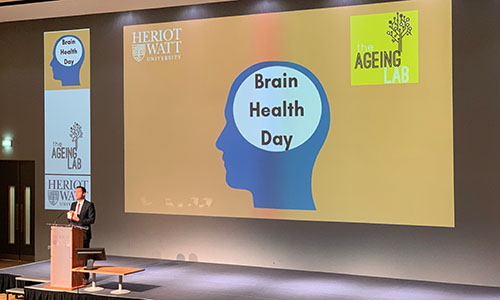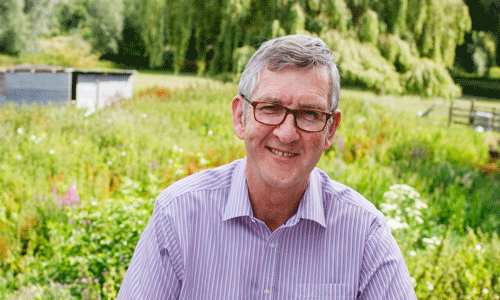What keeps you sharp? That's an important question for many of us, especially as we get older. It was also the name of a nationwide survey exploring what people expect to happen to their thinking skills as they get older, and the first results from this have just been released.
Over 3000 people across the UK responded to the survey, aged from 40 to 98 years old, and we've published these findings in a new report, What Keeps You Sharp?. Aimed at the public, older peoples' groups, charities and health professionals, our intention is to help everyone think about their brain health in the same way we've become more knowledgeable over recent generations about managing our heart health or lowering our risk of certain cancers.
What did the results say?
Among key findings were that people expected memory to be the skill that would decline earliest, while wisdom and knowledge might be maintained for longest or never decline.
We also discovered most people thought that changes in thinking skills might equally be down to lifestyle factors and genetics.
Elsewhere, while almost 9 out of 10 people believed it might be possible to maintain or even improve their thinking skills as they grow older, only 6 in 10 were sure what kinds of things might be good for protecting thinking skills with age.
Changes in thinking skills aren't an inevitable part of getting older
It’s clear from the survey many people have concerns about how their thinking skills might change as they get older. However, it’s important to remember these changes aren’t an inevitable part of later life and there are so many things we can do to keep our brains healthy.
If you are unsure what these are, a number of resources outline lifestyle choices we can make to maintain or improve our thinking skills in later life. Age UK's Staying Sharp webpages have a wealth of information on this subject, highlighting how everything from keeping active to maintaining a healthy weight to getting a good night’s sleep can contribute to retaining thinking skills like memory and problem solving in later life.
If you have any further questions, your GP or the NHS website would also be a good source of support.
What’s more, it’s essential that professionals address an older person’s concern about their thinking skills as clearly as possible, helping them identify things that might be beneficial for their brain health. We need to ensure support exists for everyone to remain as mentally, socially and physically engaged in later life as possible.
What next?
Our survey was the first stage in a three-year study. In the next stage we’ll explore how taking up a new activity might benefit thinking skills in people aged 65 or over. The study continues to recruit people aged 65 and over in and around Edinburgh, so if you or any of your family or friends might be interested, you can contact the research team for more details at HealthyAgeing@hw.ac.uk.
The What Keeps You Sharp? survey was conducted by The Ageing Lab at Heriot-Watt University, Edinburgh. Click here to view the full report. Contact the research team at HealthyAgeing@hw.ac.uk if you would like a hard copy of the report, or if you have any further questions.
Find out more about looking after your thinking skills in our Staying Sharp online hub
Author
This guest post was contributed by Dr Alan J. Gow, Associate Professor in Psychology at the School of Social Sciences, Heriot-Watt University





